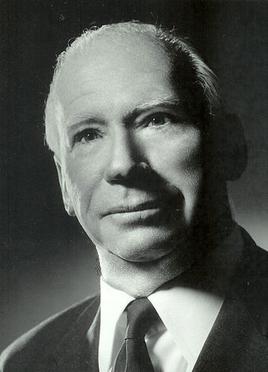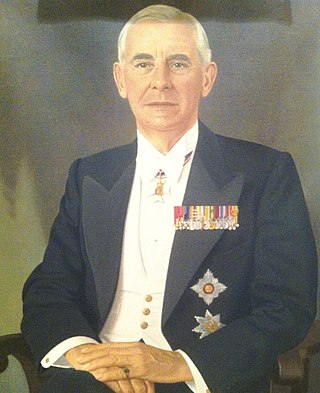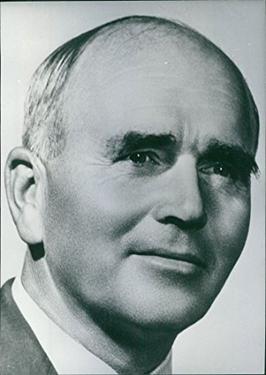Related Research Articles

Rhodesia, officially from 1970 the Republic of Rhodesia, was an unrecognised state in Southern Africa from 1965 to 1979. During this fourteen-year period, Rhodesia served as the de facto successor state to the British colony of Southern Rhodesia, and in 1980 it became modern day Zimbabwe.

Northern Rhodesia was a British protectorate in Southern Africa, now the independent country of Zambia. It was formed in 1911 by amalgamating the two earlier protectorates of Barotziland-North-Western Rhodesia and North-Eastern Rhodesia. It was initially administered, as were the two earlier protectorates, by the British South Africa Company (BSAC), a chartered company, on behalf of the British Government. From 1924, it was administered by the British Government as a protectorate, under similar conditions to other British-administered protectorates, and the special provisions required when it was administered by BSAC were terminated.

Southern Rhodesia was a landlocked, self-governing British Crown colony in Southern Africa, established in 1923 and consisting of British South Africa Company (BSAC) territories lying south of the Zambezi River. The region was informally known as South Zambesia until annexation by Britain, at the behest of Cecil Rhodes's British South Africa Company. The bounding territories were Bechuanaland (Botswana), Northern Rhodesia (Zambia), Portuguese Mozambique (Mozambique) and the Transvaal Republic.

Rhodesia's Unilateral Declaration of Independence (UDI) was a statement adopted by the Cabinet of Rhodesia on 11 November 1965, announcing that Rhodesia a British territory in southern Africa that had governed itself since 1923, now regarded itself as an independent sovereign state. The culmination of a protracted dispute between the British and Rhodesian governments regarding the terms under which the latter could become fully independent, it was the first unilateral break from the United Kingdom by one of its colonies since the United States Declaration of Independence in 1776. The UK, the Commonwealth, and the United Nations all deemed Rhodesia's UDI illegal, and economic sanctions, the first in the UN's history, were imposed on the breakaway colony. Amid near-complete international isolation, Rhodesia continued as an unrecognised state with the assistance of South Africa and Portugal.

Sir Roland "Roy" Welensky was a Northern Rhodesian politician and the second and last Prime Minister of the Federation of Rhodesia and Nyasaland.

Clifford Walter Dupont was a British-born Rhodesian politician who served in the internationally unrecognised positions of officer administrating the government and president. Born in London and qualifying as a solicitor, Dupont served during the Second World War as an officer of the British Royal Artillery in North Africa before first visiting Southern Rhodesia in 1947. He returned a year later, started a ranch and emigrated full-time during the early 1950s, by which time the country had become a territory of the Federation of Rhodesia and Nyasaland.

Sir Edgar Cuthbert Fremantle Whitehead, was a Rhodesian politician and statesman who served as Prime Minister of Southern Rhodesia from 1958 to 1962. He had a long and varied political career, serving as a longstanding member of the Southern Rhodesian Legislative Assembly and in a variety of minister posts over the course of nearly three decades. simultaneously serving in a variety of government position posts. His work was frequently interrupted by recurring health problems; he suffered from poor eyesight and later experienced deafness whilst in office. An ally of Sir Roy Welensky, he was Prime Minister of Southern Rhodesia from 1958 to 1962. His government was defeated in the 1962 general election by the Rhodesian Front.

Pieter Kenyon Fleming-Voltelyn van der Byl was a Rhodesian politician who served as his country's Foreign Minister from 1974 to 1979 as a member of the Rhodesian Front (RF). A close associate of Prime Minister Ian Smith, Van der Byl opposed attempts to compromise with the British government and domestic black nationalist opposition on the issue of majority rule throughout most of his time in government. However, in the late 1970s he supported the moves which led to majority rule and internationally recognised independence for Zimbabwe.
John Hartley Howman served as a Rhodesian Front Member of Parliament in Salisbury and the Minister of Tourism and Information in the cabinet of Prime Minister Ian Smith. He became Rhodesian minister of external affairs and defence in September 1968.

The Rhodesian Air Force (RhAF) was an air force based in Salisbury which represented several entities under various names between 1935 and 1980: originally serving the British self-governing colony of Southern Rhodesia, it was the air arm of the Federation of Rhodesia and Nyasaland between 1953 and 31 December 1963; of Southern Rhodesia once again from 1 January 1964; and of the unrecognised nation of Rhodesia following its Unilateral Declaration of Independence from Britain on 11 November 1965.
General elections were held in Southern Rhodesia on 25 April 1946, seven years after the previous elections in 1939, the term of the Southern Rhodesian Legislative Assembly having been extended so that there would be no general elections during World War II. The elections showed a strong shift to the right, as the United Party government led by Prime Minister Godfrey Huggins lost its overall majority; however, Huggins could count on the support of one of the factions of the Rhodesia Labour Party in any vote of confidence and therefore remained in office.
The Independence Decoration was a Rhodesian civil decoration awarded to persons who played a notable and significant part in the Unilateral Declaration of Independence in 1965.

The Rhodesian Security Forces were the military forces of the Rhodesian government. The Rhodesian Security Forces consisted of a ground force, the Rhodesian Air Force, the British South Africa Police, and various personnel affiliated to the Rhodesian Ministry of Internal Affairs. Despite the impact of economic and diplomatic sanctions, Rhodesia was able to develop and maintain a potent and professional military capability.
Kenneth Flower, ID was a Rhodesian police officer and intelligence chief.

Jack William Pithey was a Rhodesian politician who served as the unrecognised state's Acting President between 1 November 1978 and 5 March 1979. He was also the President of the Senate of Rhodesia from 1970 to 1978 having previously been Member of Parliament for the Avondale constituency in north-west Salisbury between 1964 and 1970.

The Federation of Rhodesia and Nyasaland, also known as the Central African Federation (CAF), was a colonial federation that consisted of three southern African territories: the self-governing British colony of Southern Rhodesia and the British protectorates of Northern Rhodesia and Nyasaland. It existed between 1953 and 1963.

Sir Ernest Lucas Guest was a Rhodesian politician, lawyer and soldier. He held senior ministerial positions in the government, most notably as Minister for Air during the Second World War.

Lancelot Bales Smith, was an English-born Rhodesian farmer and politician. Elected to Parliament in the 1950s, he was a founding member of the Rhodesian Front in 1962. He was minister without portfolio in the cabinet of Prime Minister Ian Smith at the time of Rhodesia's Unilateral Declaration of Independence in 1965. In 1968, after serving as Deputy Minister of Agriculture, he was appointed Minister of Internal Affairs, a position he held until 1974, when he exited politics.
George Rollo Hayman was a Rhodesian farmer and politician. A member of the House of Assembly, he served in several portfolios as a member of the Cabinet of Rhodesia under Prime Minister Ian Smith. Born in the United Kingdom, he moved to Southern Rhodesia at age four and served as a Royal Air Force pilot in World War II.
Albert Rubidge Washington Stumbles, was a Southern Rhodesian lawyer and politician. After serving as a minister under Garfield Todd and Edgar Whitehead, Stumbles became the Speaker of the Legislative Assembly of Southern Rhodesia in 1964, a post he held until 1972. As Speaker, Stumbles is best remembered for his acceptance of Southern Rhodesia's Unilateral Declaration of Independence in 1965.
References
- ↑ Howman, H.R.G. Passmore, G.C. (ed.). H.R.G. Howman on Provincialisation in Rhodesia, 1968-1969 and Rational and Irrational Elements (PDF). Cambridge African Occasional Papers 4. pp. x.
- ↑ Flower, Ken (1987). Serving Secretly: An Intelligence Chief on Record: Rhodesia into Zimbabwe, 1964 to 1981. London: John Murray.